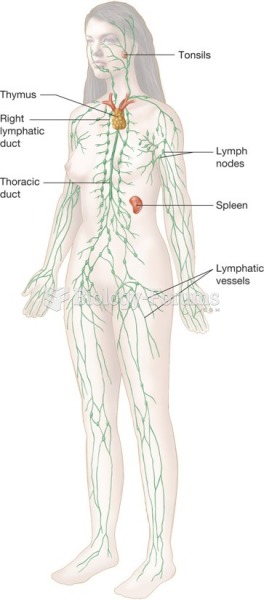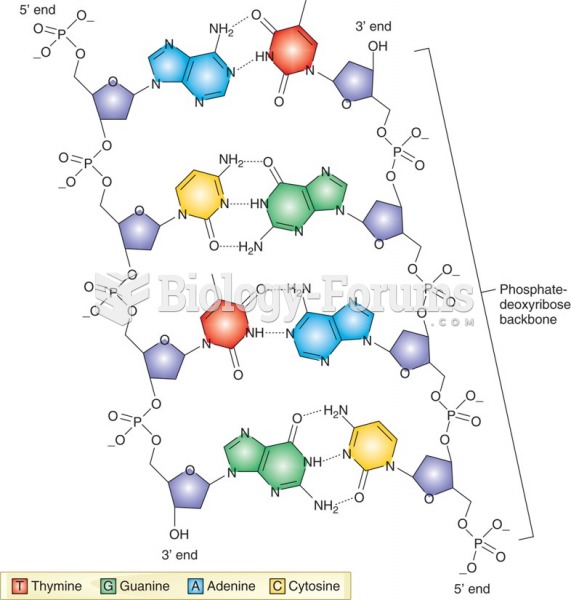|
|
|
The National Institutes of Health have supported research into acupuncture. This has shown that acupuncture significantly reduced pain associated with osteoarthritis of the knee, when used as a complement to conventional therapies.
It is difficult to obtain enough calcium without consuming milk or other dairy foods.
In 1844, Charles Goodyear obtained the first patent for a rubber condom.
Approximately one in four people diagnosed with diabetes will develop foot problems. Of these, about one-third will require lower extremity amputation.
The term bacteria was devised in the 19th century by German biologist Ferdinand Cohn. He based it on the Greek word "bakterion" meaning a small rod or staff. Cohn is considered to be the father of modern bacteriology.







![Tiësto - Back Around (feat. AR/CO) [Official Audio]](https://biology-forums.com/gallery/47/medium_6_16_08_23_11_56_10.jpg)